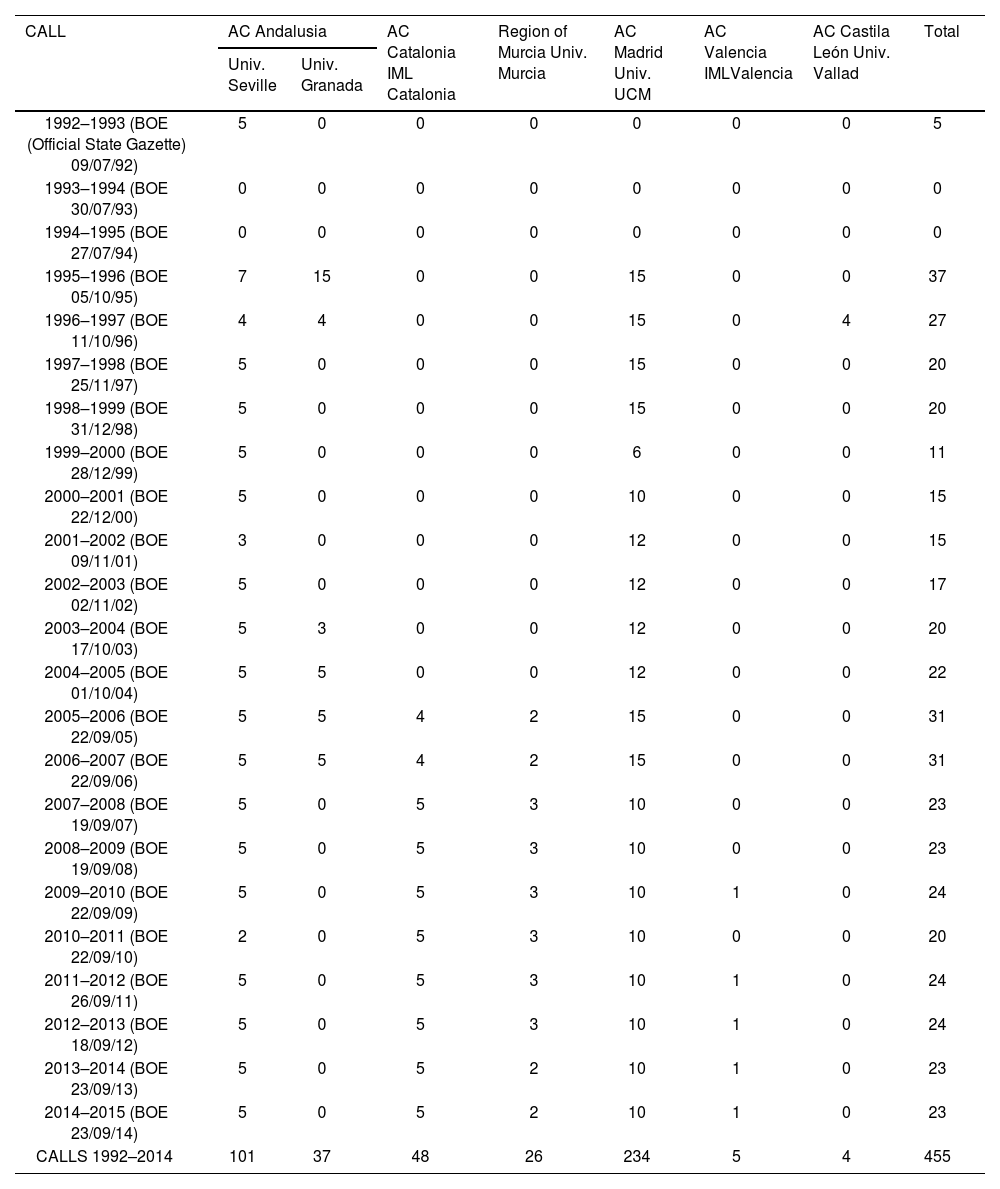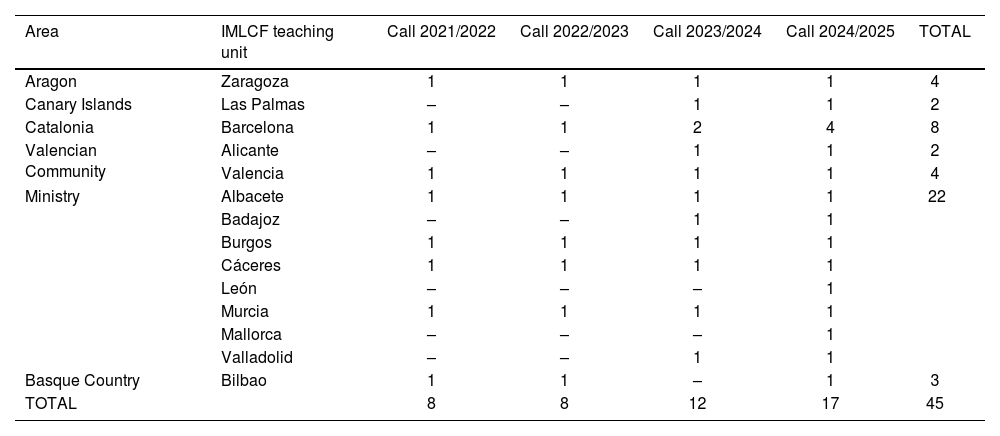The organization of Legal and Forensic Medicine in Spain has undergone important structural and functional changes. Social, legislative, and technological progress has determined an evolution in the form of access, scope of action, organizational dependence, functions, specialisation, provision of resources, extrajudicial activities, and relations with other institutions. The figure of the forensic doctor attached to a court, isolated, polyvalent, with no teaching or research activity is now a thing of the past. The figure of the Institutes already provided for in Organic Law 6/1985 of 1 July 1985 on the Judiciary promoted unity of action, teamwork, specialisation and training, teaching, and research. The enactment of Royal Decree 144/2023, of 28 February, approving the Regulations of the Institutes of Legal Medicine and Forensic Sciences has allowed these technical bodies to adapt to the process of modernisation of justice and to the necessary social and health projection of forensic sciences. We must look to the future and adapt the organizational structure, the functioning of the institutes, and the regulations for their creation and entry into operation to the new changes.
La organización de la Medicina Legal y Forense en España ha asistido a cambios estructurales y funcionales importantes. La progresión social, legislativa y tecnológica ha determinado una evolución en la forma de acceso al cuerpo de médicos forenses, ámbito de actuación, dependencia orgánica, funciones, especialización, dotación de medios, actividades extrajudiciales y relaciones con otras instituciones. La figura del médico forense adscrito a un juzgado, aislado, polivalente, sin actividad docente e investigadora ha quedado atrás. La figura de los Institutos de Medicina Legal prevista ya en la Ley Orgánica 6/1985, de 1 de julio, del Poder Judicial promovió la unidad de la actuación, el trabajo en equipo, la especialización y la formación, docencia e investigación. La promulgación del Real Decreto 144/2023, de 28 de febrero, por el que se aprueba el Reglamento de los Institutos de Medicina Legal y Ciencias Forenses ha permitido adaptar estos órganos técnicos al proceso de modernización de la justicia y a la necesaria proyección social y sanitaria de las ciencias forenses. Debemos mirar hacia el futuro y adaptar a los nuevos cambios la estructura organizativa, la normativa de creación y entrada en funcionamiento, la especialización, así como a la necesaria trasformación digital y mejora de la calidad que debe acompañar todo este proceso.
Artículo
Comprando el artículo el PDF del mismo podrá ser descargado
Precio 19,34 €
Comprar ahora







